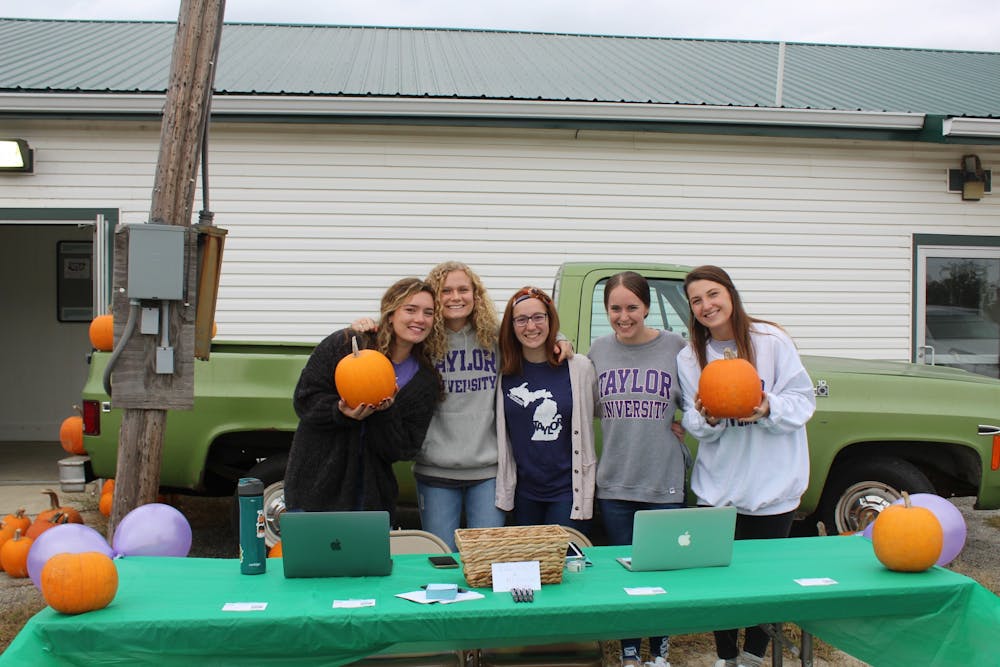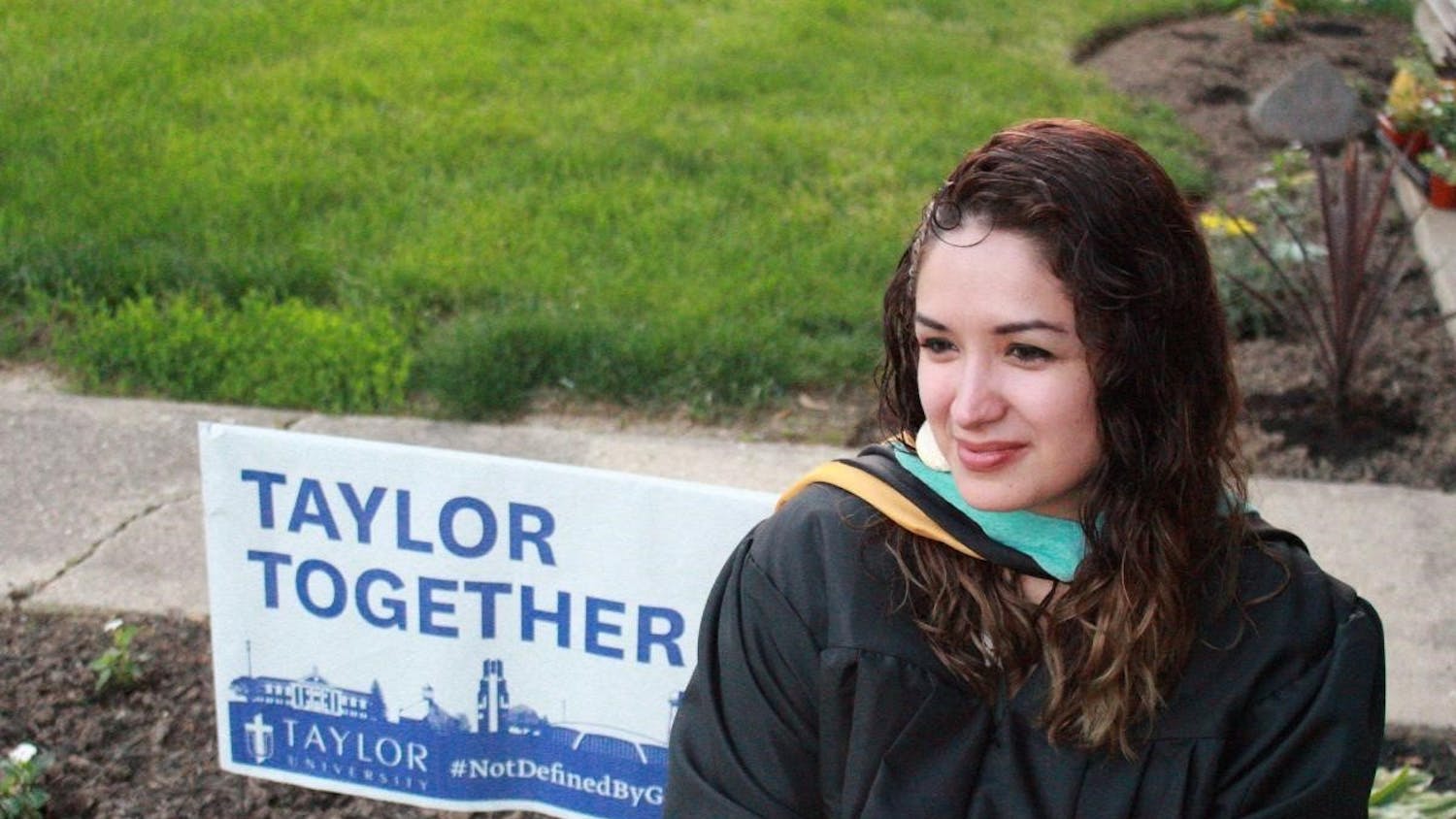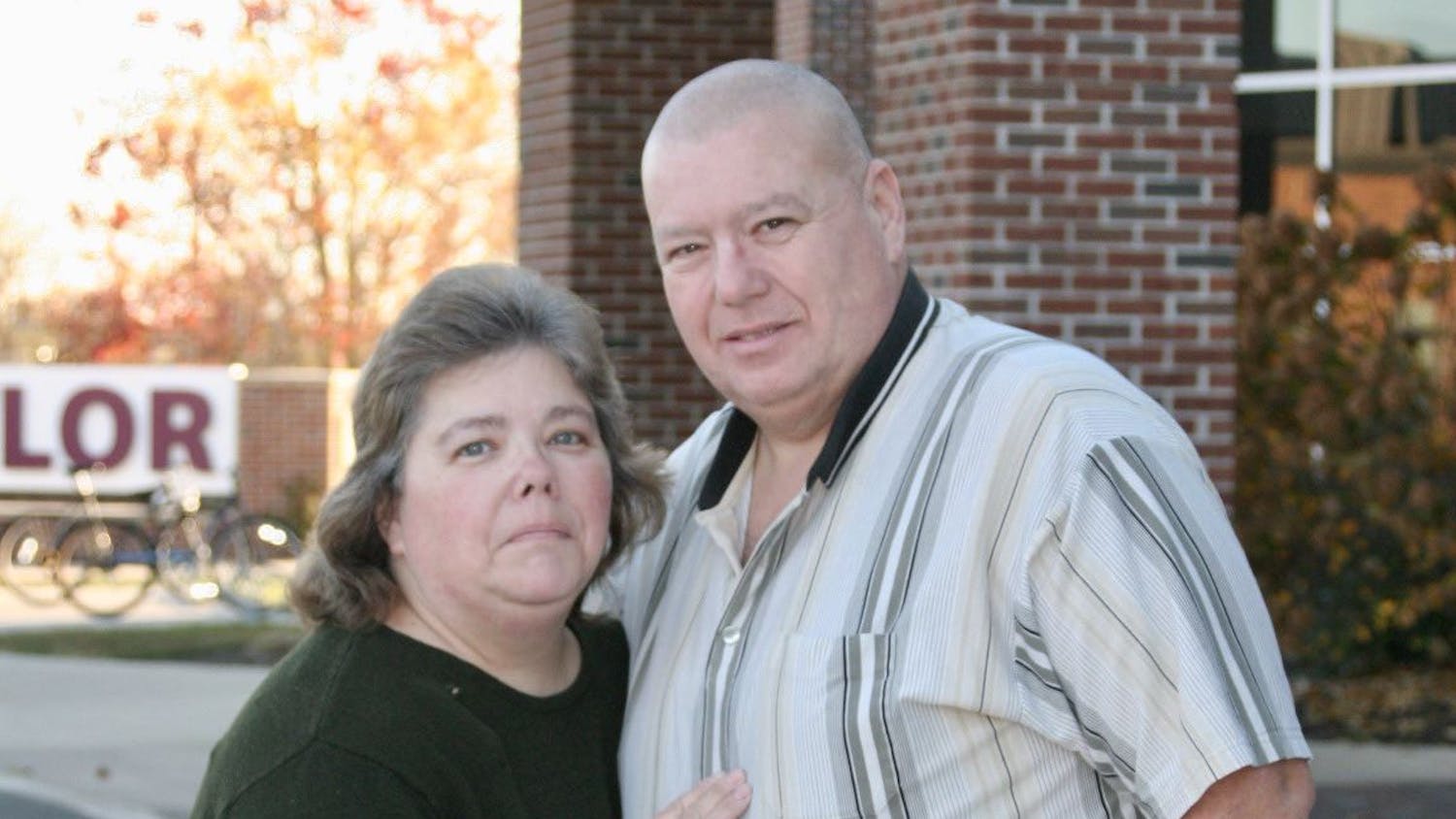How can learning be centered on the community?
In Assistant Professor of Social Work Kara Riggleman’s Social Work Process and Practice 3 course, the integration of community service and learning is a clear theme and goal.
Riggleman’s course, which is often referred to as “Communities,” focuses on macro social work.
She explained how normally when people think of social work, they think of it on the micro-level, but Riggleman is a macro-level practitioner. Her macro-level expertise has allowed her to teach courses of this branch of social work at Taylor.
This past summer, Riggleman was able to begin piecing together a project with a local doctor. Through this project, she was able to take macro social work to a more tangible level for the nine students in her course.
“What I specialize in and what this project was about is more macro, so kind of systems, community development, policy, engagement — things like that that are kind of bigger level interventions to help folks,” Riggleman said. “So, we do one on one work with macro, but we're more kind of focused on how the system can improve the lives of people.”
Dr. Jennifer Clamme of Hartford City came to Taylor’s social work department explaining how she has been overrun with patients, particularly those with mental health needs.
Clamme’s request for aid spurred a burst of thinking and planning on Riggleman’s part.
“The micro-level kind of intervention there is to send in a counselor and like help there,” Riggleman said. “But systems — how do we offload those clients so that they don't have to go to her for mental health needs, right like in the first place?
One way that Riggleman decided that she and her class would help out was through a survey.
The goal of this survey is to assess the needs of the Hartford City community. The class hopes to find out what the community knows about mental health and what their needs are regarding mental health.
“What do you know about mental health services in the area?” Riggleman asked. “Do you know how to access them? Do you have transportation? Is there a need for X,Y and Z services and just kind of learning like what the community needs?”
She explained that the results from the survey are starting to display a negative connotation and stigma toward receiving mental health services.
Hoping to reduce this stigma, Riggleman and her students also helped plan and run a fall festival in Hartford City. They partnered with Purdue Extension and 4-H, who already had this event in place.
The festival resembled a community trunk or treat, and Riggleman’s class invited several counselors and mental health service providers to be present as resources for the community.
“One thing I’m learning is that the Hartford City community longs for Taylor to be present there, and I think they just love (it) when students come,” Riggleman said.
At the event, students passed out little bags of candy that contained mental health resource guides inside.
My students developed this handy little resource guide,” Riggleman said. “So for folks that you know, are facing domestic abuse and violence, for instance, they have phone numbers here and websites. So, my students just kind of got in touch with all of the service providers in the area and made sure all of that contact information was right.”
Riggleman’s class is divided into three working groups and she consistently checks in with each group to ensure that everyone is on task, events are planned and prepared for, the right phone calls are being made and other tasks are complete.
This course has been much more unpredictable than the other courses she teaches, which is challenging at times, but overall, rewarding.
“It’s been highly collaborative, which has been fun and very immersive like I think I've only lectured a handful of times, and I kind of love that,” Riggleman said. “I think as a college student, you probably get enough lecturing. Just being over there in Hartford City I think has been probably the most powerful part of the learning experience.”
The students in her class were also able to attend a city council meeting and meet with the Hartford City mayor to present their community assessment of the city.
Community assessments are tools that macro social workers use to learn more about a specific community. The assessment conducted by Riggleman’s class consisted of both qualitative and quantitative data that is of interest and value to the city council and mayor.
Through each of the projects that Riggleman and her students are doing, her goal is to center the community of Hartford City and support what they are already doing.
“The truth is, they're just already doing really cool things in Hartford City, and they just have invited us along for the ride,” Riggleman said. “And so we're honored to be a part of that.”
Riggleman believes that this project will not only have a positive impact on the Hartford City community but also on her students.
She highlights the biggest lessons her students have been able to learn through this partnership.
“I think that they've learned the power of collaborating with one another and collaborating with the community and like how we just get so much more done when we're not working alone,” Riggleman said.
She hopes that the continued collaboration and efforts of this course will reduce the stigma around mental health, and also, display to the community who they should see when they suffer from various mental health issues.
“My hope kind of from that big picture lens is to alleviate some of the strain on (Clamme) by redirecting where those patients might go,” Riggleman said.
Riggleman encourages the students of Taylor to push themselves outside the Taylor bubble and become more involved with the surrounding communities.
She hopes that in the future, there is a greater intentional overlap between the Taylor community and the community of Hartford City.
“Once you get to know people, you see that there's so much happening behind closed doors and behind walls that you just wouldn't grasp if you're just driving through (their city),” Riggleman said.





